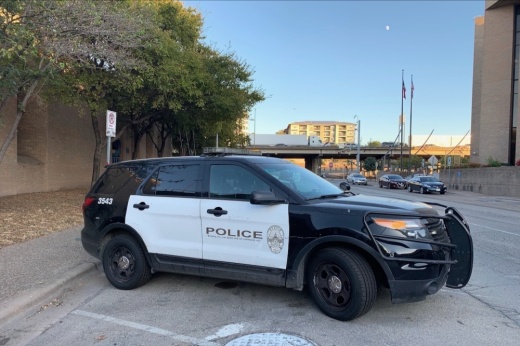The funding also comes as a new city- and community-led collaborative project has gotten underway to advance more than 100 proposals for structural change in Austin's sexual assault response system.
What happened
On Sept. 21, City Council voted to fund new oversight of the APD's work against sex crimes and new policing programs. Action items included:
- A $507,510 state grant for a one-year APD crisis intervention project that will fund up to five new staff positions for counseling as well as to help victims navigate justice systems and personal services, which will help an estimated 1,750 people
- A $106,063 state grant for a proactive APD program that will send a small team of retired investigators out to monitor bars and other places identified as venues with a high risk of sexual violence, and surveillance equipment for high-risk domestic violence cases
- A $237,500 city contract with End Violence Against Women for a comprehensive audit of the APD's Sex Crimes Unit and its handling of sexual assault cases, with a publicly published final report
- A separate $100,000 contract with EVAW to review a random sampling of APD sexual assault cases opened in 2021 and 2022, following the Police Executive Research Forum's audit of almost 1,500 cases from the previous decade
"These items aren’t just contracts and grants. They are agreements. They are commitments that stem from hard, collaborative work and involve real lives, real traumas and real persistence on the behalf of advocates and survivors who are holding us accountable to make real systemic change," Council Member Alison Alter said.
How we got here
Problems in the APD's DNA lab, the police department's reported mishandling of sex crimes, and allegations of bias and mistreatment of survivors put Austin's sexual assault response processes under a spotlight over recent years.
The topic was among the key issues in the confirmation of former police Chief Joseph Chacon, prompted the PERF's years-long review of APD investigations and has remained a priority for community advocates.
Officials in 2022 approved an $875,000 settlement deal over a pair of lawsuits filed by survivors against Austin over how their cases were handled. That agreement included more than a dozen requirements for the city to update its processes in addition to the monetary settlement.
The PERF review also produced over 100 additional recommendations for improved practices.
The big picture
A new collaborative, the Collective Sex Crimes Response Model project, has been formed to see those various proposed improvements through.
The CSCRM is made up of more than 40 members, including community advocates, APD staff and representatives with relevant local organizations—an unprecedented local partnership centered on the topic.
“All along since I got involved in late 2018, 2019, the goal has been systemic change and to really shift how we’re approaching things so that we can be survivor-centered and that we are supporting our officers so that they can do the best job possible in this arena,” Alter said of the project. “I think we are finally at a point where we have the parties that need to be at the table at the table, honestly and openly collaborating to make the changes happen.”
Council members got an initial progress report from the CSCRM during a Sept. 19 briefing. Team members said it's still early on in the process and will take a while to finalize all proposed changes, but they generally expressed confidence that work is finally on track. The group has already completed or is moving to implement several proposals after a few months.

Senko also said the project will feature regular reporting to city officials and other residents, and the police department must ensure that any updates take root.
“It is ultimately APD that is responsible and accountable for this work, while it is the extended community experts and advocates that are to be consulted and stakeholders like yourself, the Commission for Women and the Public Safety Commission that are to be informed as to the status and progress,” Senko told council.
APD leadership at the council session said the department plans to offer any resources needed by the CSCRM while its officers and staff remain involved in the process.
“Our support comes in the form of giving them what they need and then getting out of their way,” Assistant Chief Jeff Greenwalt said.
What's next
As the work of the CSCRM continues, the project team will provide quarterly check-ins with the city's Commission for Women and Public Safety Commission. Further reports to council could also take place.
Chacon and interim police Chief Robin Henderson, who started her position Sept. 3, are also expected to meet with a group of sexual assault survivors in October to discuss the process. Alter said it's “absolutely critical” for Henderson to stay involved as things move forward.
Quote of note
“When I talk with Hanna [Senko] or I talked with the folks who are involved in the [Austin/Travis County Sexual Assault Response and Resource Team], everyone is very optimistic that we are finally at a place where the real change is going to happen,” Alter told Community Impact. “But we have to be willing to make the investment of time and ultimately resources to get us to that place we’ve been trying to get to to be the leaders in the response, as opposed to the ones being sued.”





